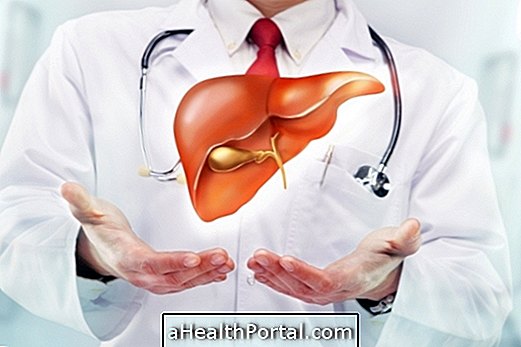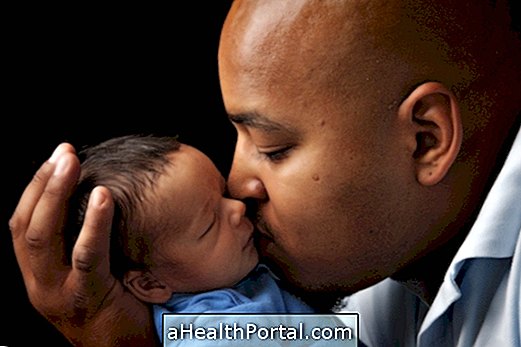Treatment for anorexia usually includes therapy to improve eating and body-eating behavior, and there may be a need to take anti-anxiety and depression medications, and the ingestion of dietary supplements to fill the body's nutrient deficiency.
During treatment, it is very important that the family is present to support the person and understand the problems they face in anorexia. The treatment of this disease can be long, lasting for months or years, and it is common to have relapses in which the extreme preoccupation with the weight returns to present itself. See more about treatment in: Treatment for anorexia or watch the following video:

Anorexia nervosa is an eating and psychological disorder that involves signs of not wanting to eat, eating too little and obsessing to lose weight, even when the weight is adequate or below ideal.
How to know if it is anorexia
To help identify a case of anorexia, check the existing signs and symptoms:
- 1. Look in the mirror and feel fat, even with weight on or under advised. Yes No
- 2. Do not eat for fear of getting fat. Yes No
- 3. Prefer not to have company at mealtime. Yes No
- 4. Count the calories before eating. Yes No
- 5. Refuse meals and deny hunger. Yes No
- 6. Lose weight fast. Yes No
- 7. Intense fear of gaining weight. Yes No
- 8. Doing intense physical exercise. Yes No
- 9. Take, without prescription, diet pills, diuretics, or laxatives. Yes No
- 10. Causes vomiting after eating. Yes No

One of the most important indicators of the presence of anorexia is the excessive preoccupation with diet and weight which is seen as a normal level of concern for those who have anorexia even when the weight is below adequate. Usually, anoretics have a more introverted personality, are more anxious, and are prone to obsessive behavior.
What can cause anorexia
Anorexia still does not have a definite cause, but usually arises during adolescence, when the charges with the new format of the body increase. This disease mainly affects women, and may be related to factors such as:
- Pressure from family and friends to lose weight;
- Anxiety;
- Depression.
Individuals who have suffered some type of abuse or who are heavily charged by society in relation to the body, such as models, are more likely to develop anorexia.
Another common eating disorder is bulimia, which is characterized by frequent vomiting after meals. Check out the differences between anorexia and bulimia.























